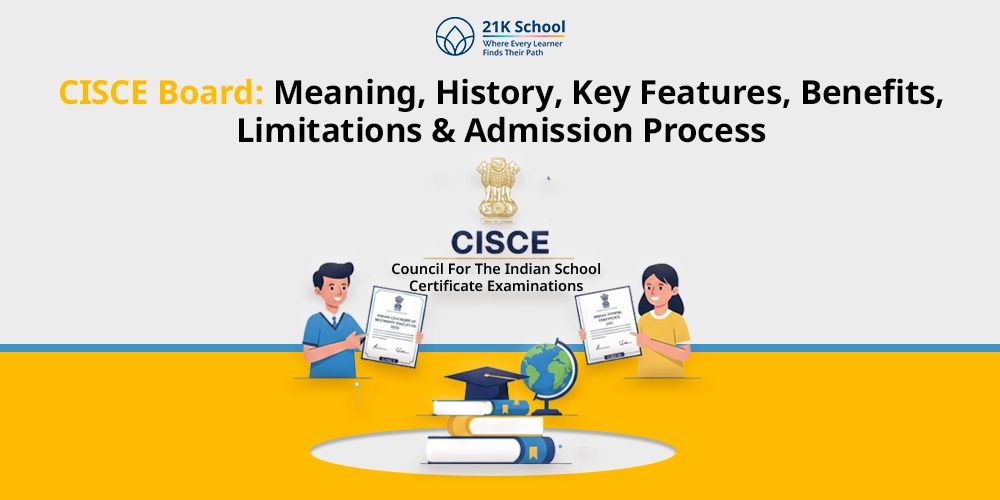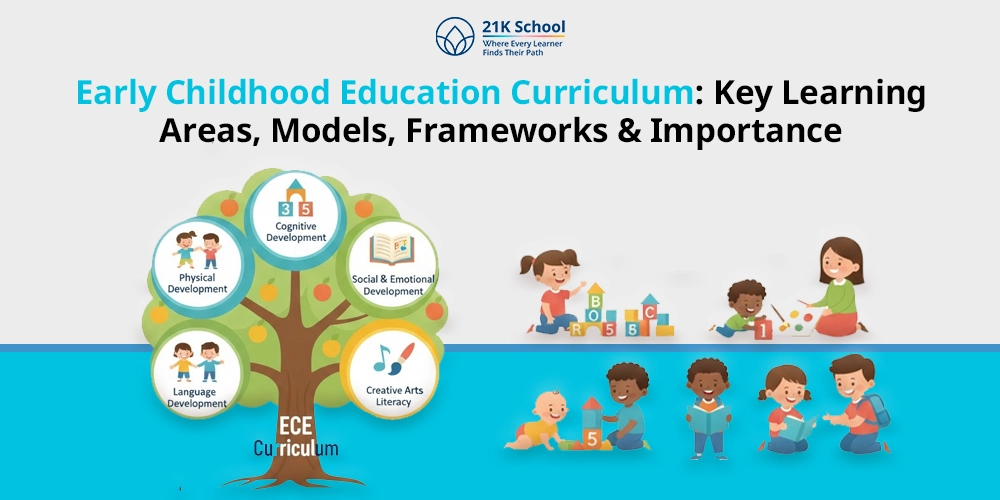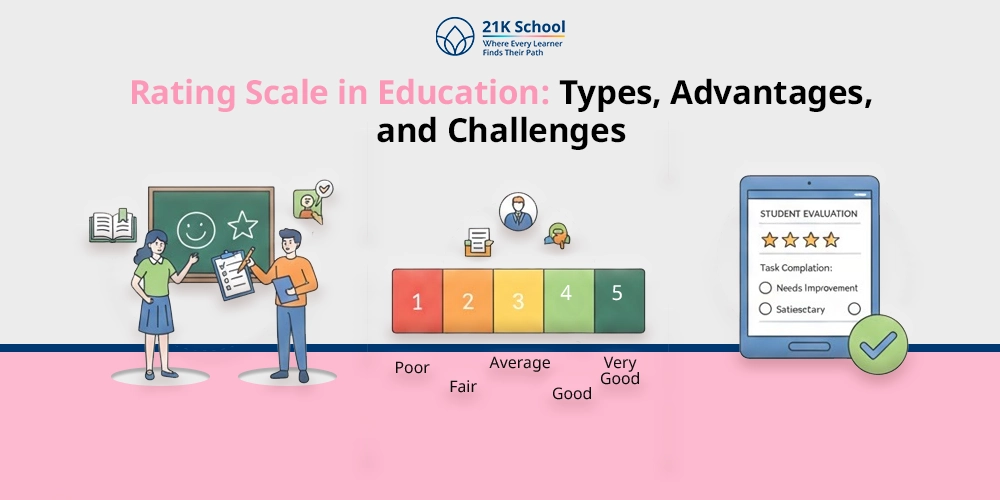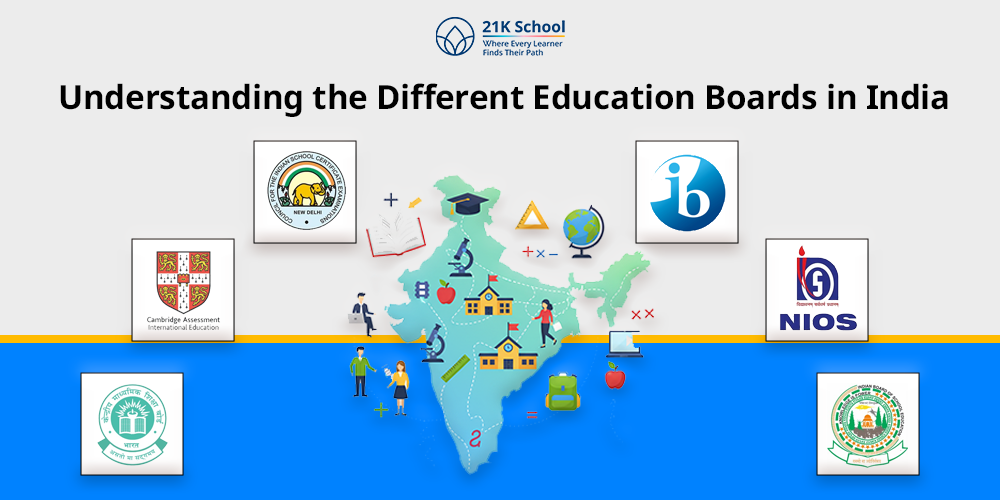
Have you ever wondered how many education boards there are in our country?
In India, there are numerous education boards, including CBSE, ICSE, IB, CAIE, etc. India has different educational boards with different curriculum, structures, rules and teaching and learning standards.
Although most of the offline and online schools, including 21K School, offer numerous boards that help in addressing the demands and needs of the students. When the educational board is selected, the parents of the children must make sure that they examine the needs and the standards.
Nevertheless, the Central Board of Secondary Education (CBSE) is the most widespread board of education in India. The Central Government of India manages and controls it.
There are numerous boards in India, so it becomes hard to select the ideal board. Making the most critical choice parents can make concerning the future of their child is the selection of the best board.
Table of Contents
Top Educational Boards in India
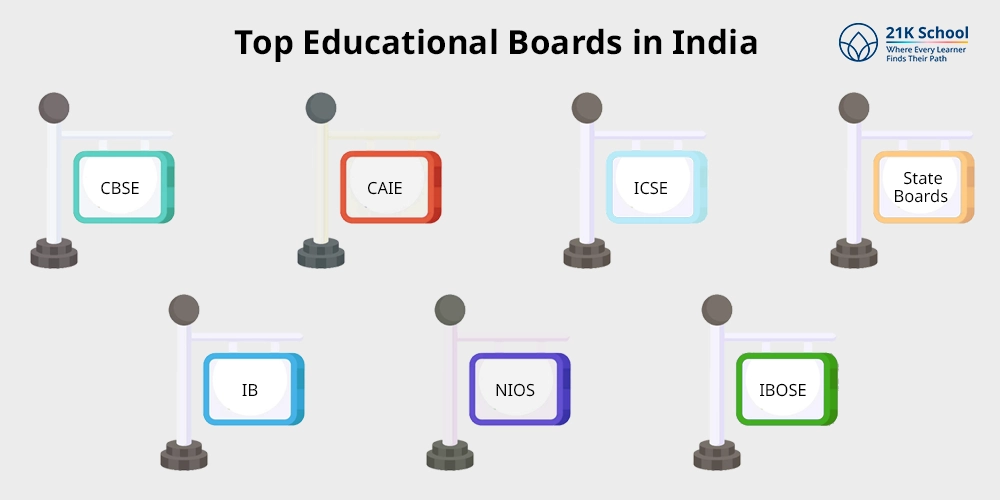
India has a wide variety of educational boards in which students can make their choice based on their needs and preferences. CBSE, ICSE, State Boards, NIOS, CAIE, etc., are considered some of the popular education boards in India.
Parents and children need to select the boards that are able to address their needs and the standards. Some of the popular educational boards include the following.
1. CBSE
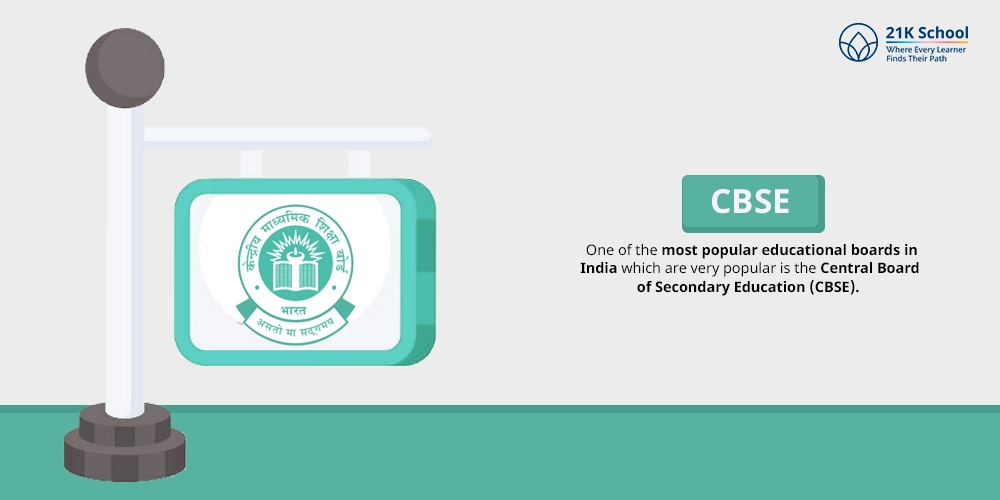
One of the most popular educational boards in India which are very popular is the Central Board of Secondary Education (CBSE). It is an organisation staffed under the Ministry of Education, Government of India and is linked to thousands of schools both in the country and abroad.
The CBSE curriculum is designed on the model that has been developed by the National Council of Educational Research and Training (NCERT), and this guarantees the uniformity of schools. It lays a lot of emphasis on conceptual learning and focuses on simple academic subjects such as Science, Mathematics and Social Studies without giving much attention to languages and co-curricular activities.
The student learns to think rationally, analyse and apply their knowledge as opposed to memorising. The syllabus provided by the CBSE is always updated to help fit in new teaching methods and other fields that are skill-based education, as it is stipulated by the national education policies.
2. CAIE
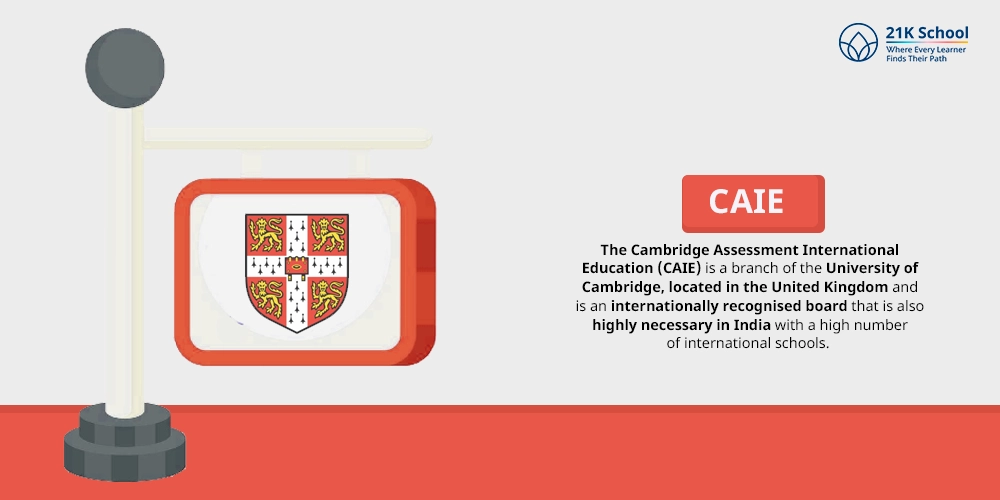
The Cambridge Assessment International Education (CAIE) is a branch of the University of Cambridge, located in the United Kingdom and is an internationally recognised board that is also highly necessary in India with a high number of international schools.
The CAIE system is designed in such a manner that it promotes independent thought, critical thinking and reasoning as opposed to rote learning. It offers different levels of education, which include Cambridge Primary, Lower Secondary, IGCSE and A Levels.
The curriculum is flexible and allows students to select subjects they have an interest in and which they want to pursue as a career, and this encourages personalised learning. The CAIE pattern of assessment includes written, coursework and practical tests, all valued equally and no preference is given to either of the two.
3. ICSE
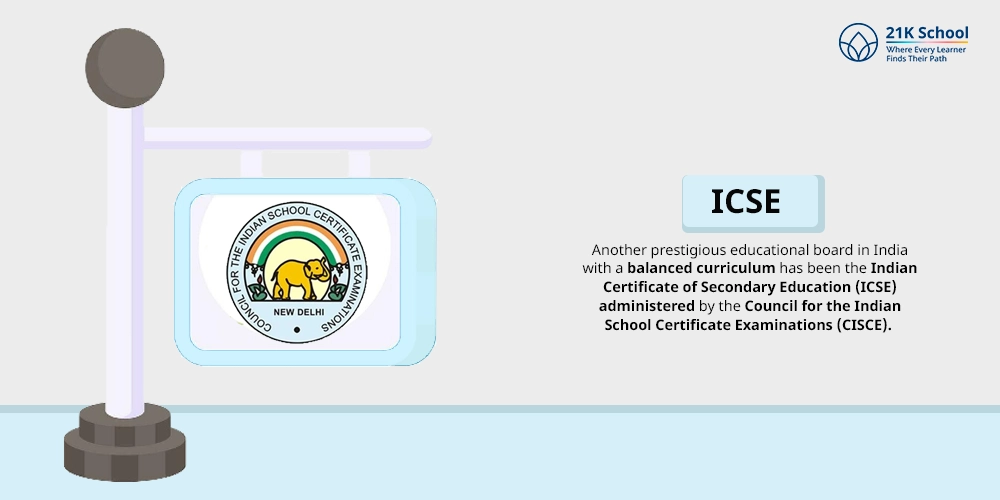
Another prestigious educational board in India with a balanced curriculum has been the Indian Certificate of Secondary Education (ICSE) administered by the Council for the Indian School Certificate Examinations (CISCE).
It was founded in 1958 and offers education that emphasises on detailed studying, critical thinking and creativity. The curriculum of ICSE strongly emphasises the importance of all the fields of study associated with Science, Humanities, and Languages, and English is a compulsory subject.
The system of examination and evaluation by the board involves internal and written examinations, such that the students attain practical knowledge along with theoretical knowledge. The curriculum is comprehensive and promotes projects, experiments and learning through application.
ICSE is also considered to be more academically demanding than other national boards because it allows developing deep knowledge and communication skills.
4. State Boards
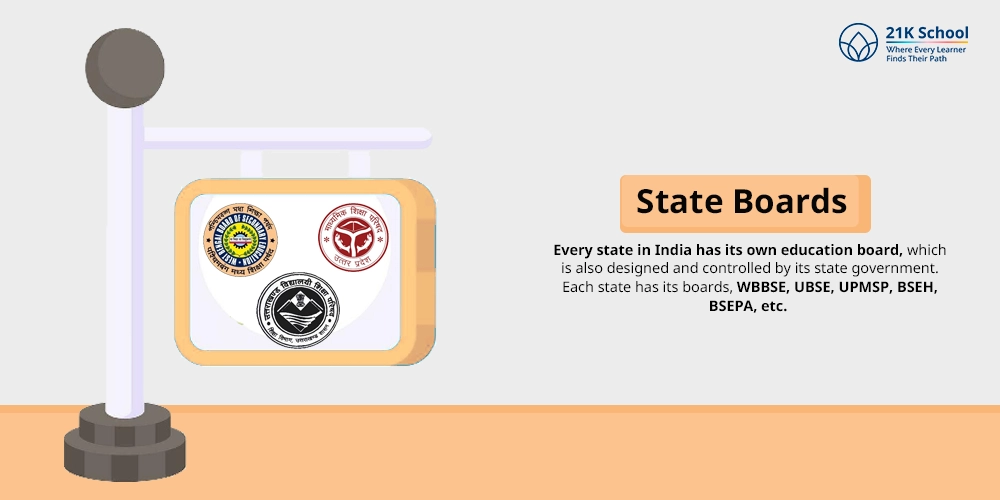
Every state in India has its own education board, which is also designed and controlled by its state government. Each state has its boards, WBBSE, UBSE, UPMSP, BSEH, BSEPA, etc.
The syllabus, textbooks, and examination systems that are designed by each state board are in line with the linguistic, cultural, and social settings of the state. In order to enhance culture and inclusiveness, these boards usually incorporate local history and regional languages in their curriculum.
The main aim of most state boards is to ensure that education is affordable, accessible and relevant to the surrounding communities. It is an evaluation system that usually includes annual tests of classes 10 and 12, and a curriculum that is a mixture of academic courses and vocational education.
The state boards play a significant role in the provision of education to all socio-economic groups and especially in rural regions.
5. IB
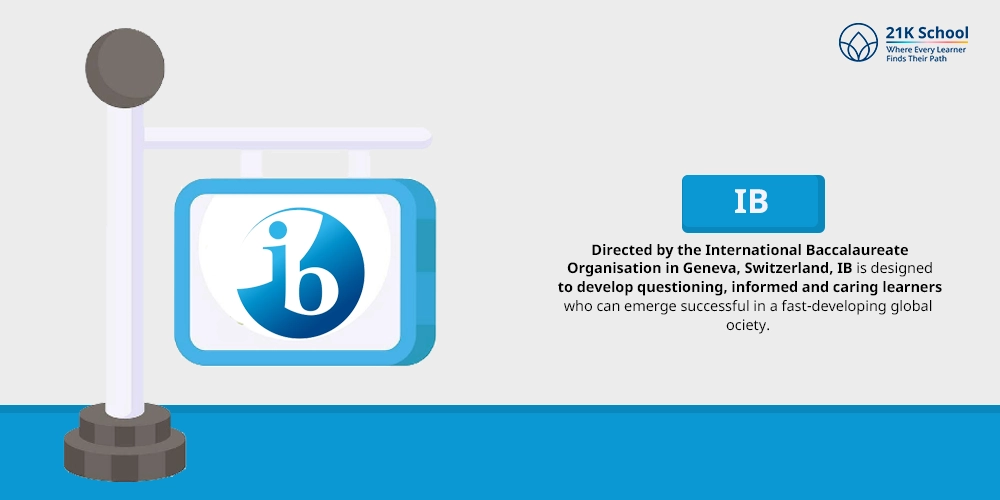
Another internationally recognised education system, which has found its way to India, is the International Baccalaureate (IB), which has taken different international schools.
Directed by the International Baccalaureate Organisation in Geneva, Switzerland, IB is designed to develop questioning, informed and caring learners who can emerge successful in a fast-developing global society.
The IB programme has four broad programmes, one is the Primary Years Programme (PYP), second is the Middle Years Programme (MYP), third one is the Career-related Programme (CP), and the last is the Diploma Programme (DP). The curriculum is interdisciplinary and focuses on inquiry-based learning, which involves students in studying the concepts both deeply and in a cross-disciplinary manner.
The IB Diploma Programme, specifically, is acclaimed to be academically rigorous and holistic. It consists of a combination of six subject groups as well as core parts like the Theory of Knowledge, Extended Essay and Creativity, Action, Service (CAS).
6. NIOS
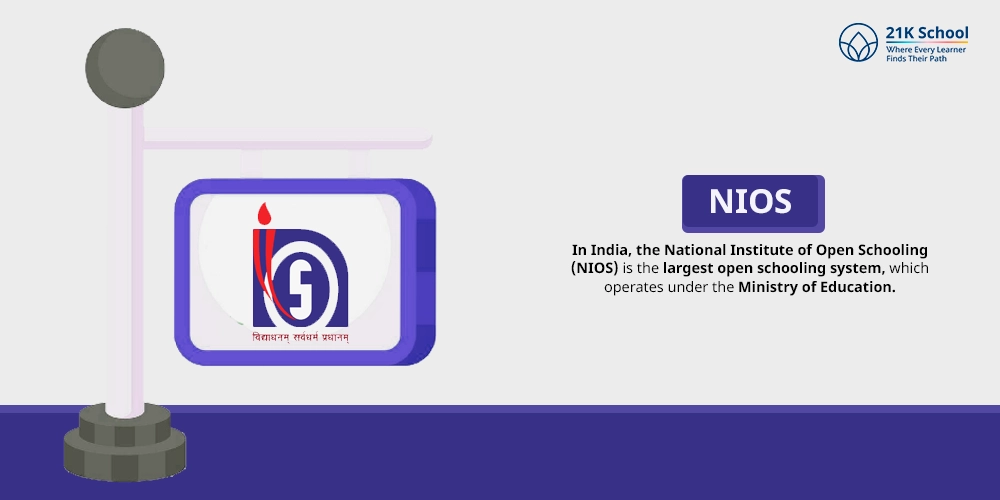
In India, the National Institute of Open Schooling (NIOS) is the largest open schooling system, which operates under the Ministry of Education. It was set up to cater to the students who may not be able to go to regular schools because of personal, geographical and professional limitations, offering flexible and inclusive learning opportunities.
NIOS provides secondary and senior secondary courses, vocational and life-enrichment courses. The main advantage of NIOS is that the flexibility allows the students to select subjects that suit them and learn at their own pace, and take the exams when they are ready.
It also has resources of study material and online support in various languages, which makes education more inclusive. NIOS qualifications are accepted by academies, government agencies and employers in India, and students can acquire higher education and employment.
7. IBOSE
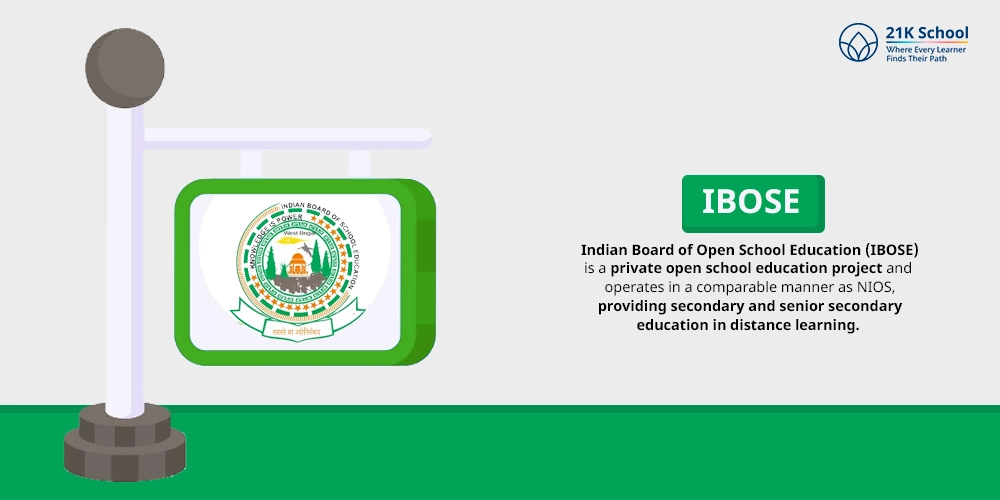
Indian Board of Open School Education (IBOSE) is a private open school education project and operates in a comparable manner as NIOS, providing secondary and senior secondary education in distance learning.
It seeks to be able to offer education to people who did not have a chance to finish their formal schooling or want to go on with their study in an alternative system. With IBOSE, students have the opportunity to choose their learning hours, study online and have exams, which suit different types of learners, such as working people and school dropouts.
The board is concerned with the encouragement of self-directed learning and offers general and vocational education. Although it is an alternative to normal schooling, students have to ensure there is recognition and accreditation information prior to enrolling as even the private boards differ on their acceptance by universities and institutions.
Ending Note
India has a great variety of different educational boards, which are CBSE, ICSE, IB, CAIE, NIOS, etc. Each of the boards is tailored to various learning needs, career objectives and educational philosophies.
The board selection is the critical step towards academic progress and overall child development. The key aspects that should be considered before a choice is taken by parents are curriculum, cost, flexible learning and future goals.
Making the right decision will guarantee that the child does not only come out with the best grades but also loves learning and becomes a competent, self-assured person.

